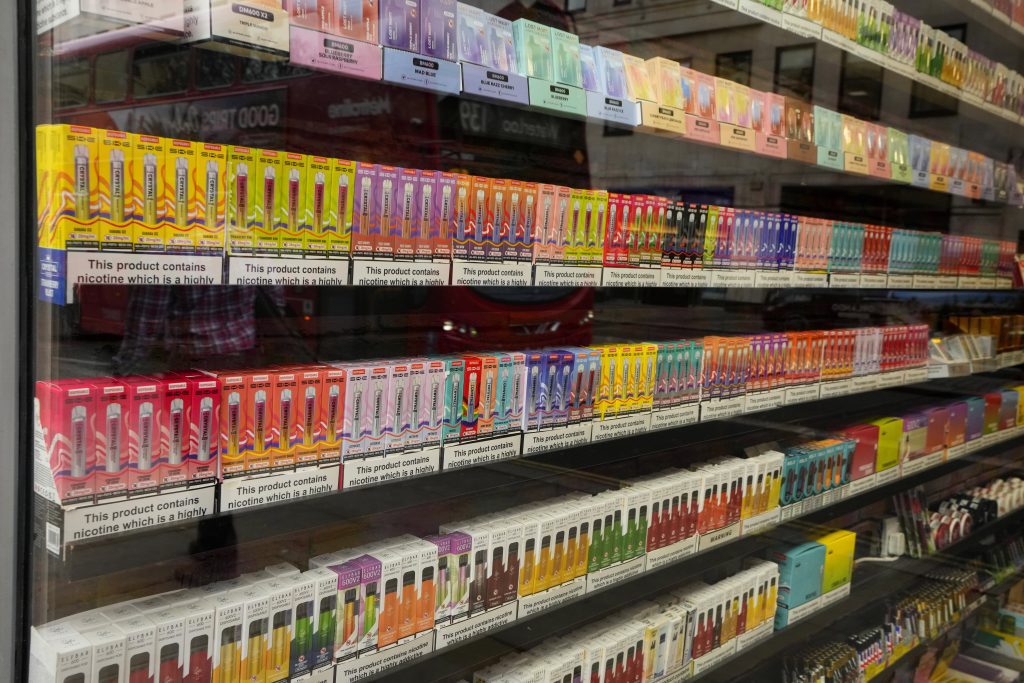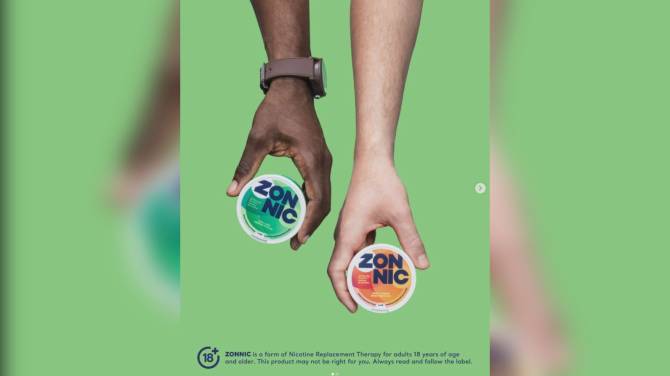The federal government issued a public advisory Wednesday warning to only use nicotine pouches as a method to quit smoking and not recreationally, the same day the minister of health vowed a crackdown on such products.
There is only one authorized nicotine pouch available in Canada, the brand Zonnic from Imperial Tobacco, but the government says unauthorized pouches are still being sold in convenience stores and gas stations.
Zonnic pouches are sold in colourful packages with flavours such as Polar Mint, Cranberry Fizz and Tropic Breeze.
The authorized pouch contains four milligrams of nicotine per dose, roughly the equivalent of three to four cigarettes, and is used by placing it in the mouth between the gums and the cheek or the upper or lower lip. There it releases nicotine into the system, similar to snus pouches popular in Sweden.
The notice reminds consumers that the pouches are only meant to help smokers quit and should not be used recreationally, that they are harmful to youth, and to not buy unauthorized pouches, which may contain unlisted ingredients.
“Using nicotine pouches in ways that have not been authorized, or using products that have not been authorized by Health Canada, may pose serious health risks, including the risk of addiction and nicotine overdose,” the notice reads.
The notice came as Health Minister Mark Holland said Wednesday that he is seeking regulation of such pouches and warned tobacco companies to “stay the hell away from our kids.”
“I am seeking authority to restrict products so they are solely for the purposes of cessation,” he said. “We shouldn’t see flavours that are targeting kids, flavours like ‘Winter Berry Splash.’ We all see through it, we all know what the intention is, and it’s over.
“Whatever dark corner the tobacco industry crawls and creeps into to go after our children, whatever loophole they think they can find, they will meet me like an iron wall.”
Nicotine pouches are not authorized for those under 18 years old, but Health Canada says in the notice that it is concerned such pouches have become popular with youth and may lead to addiction. It says it is pursuing “legislative and regulatory mechanisms to put in place safeguards” around their use.
Holland accused the tobacco industry on Wednesday of using a “loophole” to get kids addicted to tobacco.
The pouches have become the latest target in ongoing efforts to reduce nicotine addiction.
“We know very little about the health effects of these products,” Cynthia Callard, executive director of Physicians for a Smoke-Free Canada, said in a media conference in late 2023.
“We don’t know, in the same way, we didn’t know how dangerous cigarettes were 100 years ago. Waiting for a whole generation to use these products before we have available epidemiology is not useful.”
British Columbia in February restricted the sale of flavoured nicotine pouches to behind the counter in pharmacies, which Holland said is “entirely appropriate” soon after the move.
The race against nicotine pouches comes after a similar movement against e-cigarettes such as Juul, which were also advertised as an alternative to smoking but became popular with youth and were offered in different flavours. The U.S. FDA blocked sales of Juul in 2022.
Holland stated that they wish to prevent a repeat of the vaping situation with nicotine pouches.
— with files from Global News’ Katie Dangerfield and Elizabeth McSheffrey.





